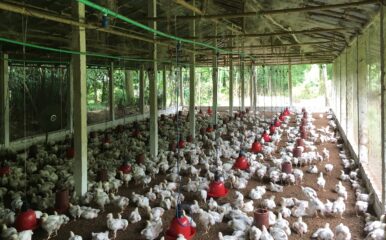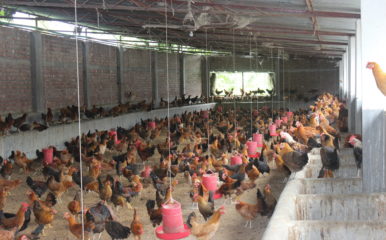
Pushing gender equality forward in Vietnam
Published on 23/03/2022
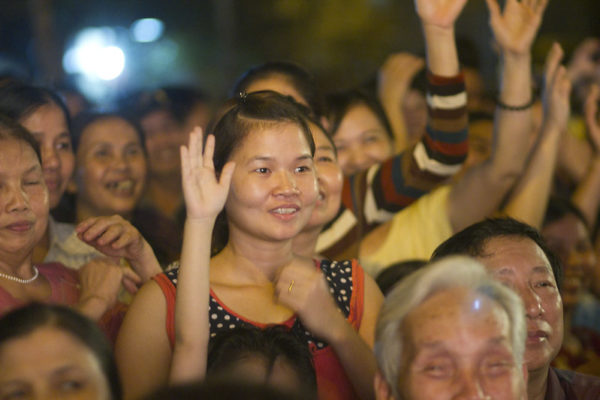
UN Women/Chau Doan via Flickr
View this page in:
VietnameseAs Vietnamese society develops, Vietnamese women have more and more chances to participate in and contribute to its holistic development. They are increasingly asserting their position and role in almost all fields, including scientific research and development.
In Vietnam, women now account for nearly half (46%) of the total human resource in research and development. Around 20% of principal investigators are women. The main research areas they work in are sociology, biology, agriculture science, chemistry, public health, and medicine – all areas covered by the One Health Poultry Hub.
Promoting women
In Vietnam, gender equality in science and technology is one of eight key areas regulated by the law on gender equality issued in 2006, so men and women can have equal access in science and technology to training courses, in disseminating scientific and technological research results and in interventions. Women are being encouraged to engage in scientific research, and measures such as adopting a policy on prioritising education and training for female researchers are being put forward to create a modern and democratic scientific research environment.
Every year too, there are awards (e.g.,Kovalevskaya and L’ Oreal- UNESCO) for outstanding female scientists and female research teams. These aim to honour and recognise women’s contributions to society. They also provide scholarships or funds for outstanding female students in universities, helping to promote research passion, love and faith in the younger female generation.
Development contributions
Vietnamese women have already made great contributions to research and development, contributing to the sustainable development of the country’s economy and to community health.
In the field of agriculture, Professor Dr Nguyen Thi Lan, Director of Vietnam National University of Agriculture (VNUA), a One Health Poultry Hub partner, received the Kovalevskaya award in 2018 for her many excellent scientific research achievements, including a rapid diagnostic kit for porcine respiratory and reproductive syndrome (PRRS) and microbial products (biological padding) used in animal husbandry to improve production performance and reduce environment pollution.
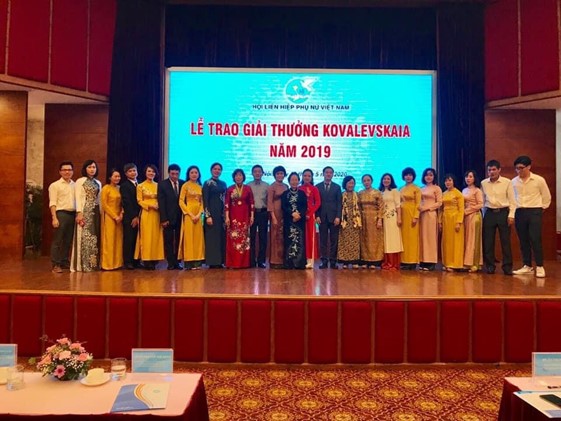
In human health, Hub researcher Associate Professor Dr Nguyen Le Khanh Hang, Vice Dean of the virology department at the National Institute of Hygiene and Epidemiology (NIHE), and her colleagues have had major successes in research and surveillance of avian influenza and seasonal influenza, and currently SARS-CoV2 viruses too. The Kovalevskaya Prize in 2019 was awarded to the all-female research members of the Influenza Laboratory at NIHE, for research aimed at reducing the burden of diseases caused by influenza epidemics, so contributing to public health protection in Vietnam as well as in other countries around the world.
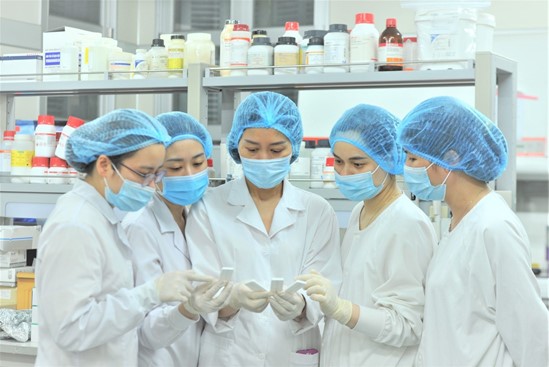
There are many other female scientists who have research successes in other fields. Their achievements have been awarded and honoured by the state and international organisations.
Outdated misconceptions
The biggest challenges for women in research today come from outdated misconceptions of family, community and society. Vietnam is a country where the traditional idea of ‘men build the house, women build homes’ still exists. This means that woman’s main duties are considered to be associated with housework (cooking, cleaning, washing) and being primarily responsible for taking care of children and the elderly. As for the husband, he takes care of his career and earns the money.
Today, many Vietnamese women have the opportunity to participate in research activities, but their work is often made harder than that for men as they have to spend time and do well in both research and housework.
In addition, the concept of gender discrimination as ‘respect for men, contempt for women’ still holds in some areas of society. This means that many people fail to appreciate the capacity of women, especially in research activities and leadership. This not only limits women’s access to higher education, but also affects selection, evaluation and promotion of female intellectuals, inhibiting the advancement and development of women.
Women and the SDGs
In the next decade, one of the Sustainable Development Goals (SDGs) for Vietnam is to foster a strong team of female graduates who can quickly access the latest knowledge and technology in the world and integrate it to the global trends in science and technology.
Nowadays, more Vietnamese women engage in international projects and take part in international discussions. All the One Health Poultry Hub partners in Vietnam – NIHE, VNUA, National Institute of Veterinary Research (NIVR), National Institute of Animal Science (NIAS), and French Agricultural Research Centre for International Development (CIRAD) – have female co-investigators. The Hub team in Vietnam is 70% of female, all working with international investigators on different research fields within One Health environment. The Hub’s outcomes, including contributions from Vietnamese female investigators, will contribute to minimising the health hazards related to intensification of poultry productions for people and poultry in Vietnam and in the world.


